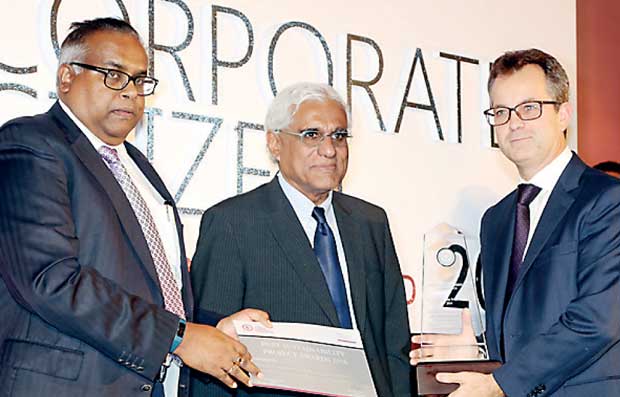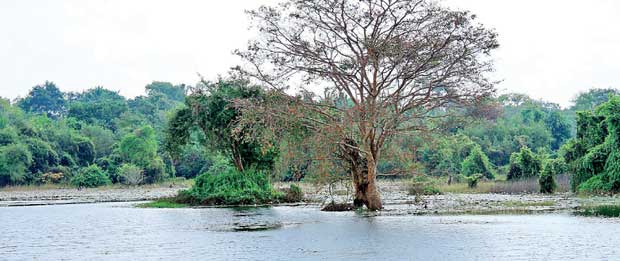Reply To:
Name - Reply Comment


HSBC and IUCN joined hands in 2012 to restore the Kapiriggama tank cascade system under HSBC’s global water programme.
Now, almost 4 years from its commencement, this partnership has changed lives of many for the better. It was also recognized at the Best Corporate Citizen Awards hosted by the Ceylon Chamber of Commerce under the ‘Best Project Sustainability Awards 2016’ segment last month.
In June this year the same project was named the winner at the Asia Responsible Entrepreneurship Awards by Enterprise Asia under the social empowerment category.
The project was funded by HSBC, and mobilised by IUCN in partnership with the Department of Agrarian Development and the local communities. In addition to the funding provided, over 200 volunteers from HSBC were involved with the restoration project.
“The social and ecological impact of the restoration project far outweighs the funding of the project itself. This restored tank cascade system is a unique combination where we simultaneously celebrate the rich heritage of the country and look forward to the promise of a better tomorrow. As a bank that has a history of nearly 125 years of being part of the Sri Lankan economy and its people, we take great pride in our involvement with this. It’s a living example of HSBC’s purpose of helping people realise their ambitions,” said Mark Prothero, CEO HSBC Sri Lanka and Maldives.
Why is restoring a tank system reason for such attention, you might ask. The truth is that access to safe water can change the lives of many. The communities which are reaping the benefits of the restored Kapiriggama Tank cascade system bear testament to this. The restored tank system directly benefits 600 families in the Kapiriggama cascade and indirectly benefits over 60,000 people with access to safe water for everyday living and livelihood development.
The three-year and three-month long restoration project which was handed over to the community also marks an epoch in the revival of Sri Lankan agrarian communities and the rich heritage of local water management, agro-engineering and irrigation. Tank cascade systems are unique to Sri Lanka and that also to the North Central and North Western provinces of the country, where there is a scarcity of water sources. They are stunning specimens of local irrigation engineering, dating back to ancient Sri Lanka, which facilitate agriculture – the main livelihood of the communities, while recycling the water for maximum usage.
For instance, the Kapiriggama cascade recycles water up to six times. The end result is improved quality of life among the surrounding communities who are traditional paddy farmers. The vast knowledge and the experience obtained from the project is documented and made available for replicating in other 457 cascades in the North Central Province. Speaking of the project, the Country Representative for IUCN Sri Lanka Dr. Ananda Mallawatantri commented, “The project proved that the tank systems are ‘nature based solutions’ in ancient day sustainable development. Different components of tank systems such as Kattakaduwa (salt absorbing plants) and Gas Gommana (wind breakers) to minimize water evaporation worth studying more”.
Parallel to the physical restoration of the cascade system, an extensive programme was conducted for the project’s full duration to enhance the ecosystem services of the cascade by improving the tank associated environment, educate the local community on aspects like water management, sustainable farming, soil management, etc. The community plays a crucial role in managing these waterways and tanks. The preservation of them has been the responsibility of the community since ancient times, and is the only sustainable solution - even though it is now neglected in many systems.
The project aims to provide a steady supply of water throughout the year to the community, enabling them to cultivate in both Yala and Maha seasons, making their contribution to the GDP of North Central Province substantial. It also targets improved access to freshwater for domestic purposes for local communities, enhancing the quality of life, while supporting groundwater management and conservation which is essential for this particular climatic region. Incidentally, the restoration of the system would help sustainable management of natural habitats and the biodiversity these habitats support.